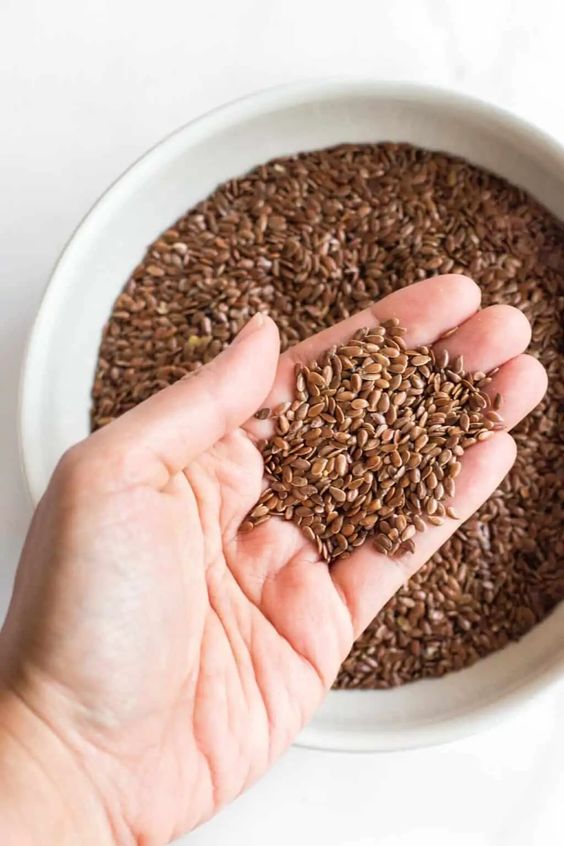
Flaxseed is a tiny powerhouse of nutrition, offering numerous health benefits that can significantly improve your well-being. Incorporating flaxseed into your diet is easy and can make a big difference in your overall health. Let’s explore 11 health benefits of flaxseed, along with tips on how to eat it, and be aware of any potential risks.
11 Health Benefits of Flaxseed
1. Rich in Omega-3 Fatty Acids: Flaxseed is an excellent source of plant-based omega-3 fatty acids, which are essential for heart health and reducing inflammation.
2. High in Fiber: Flaxseed is packed with both soluble and insoluble fiber, which aids digestion, helps maintain bowel regularity, and can prevent constipation.
3. Lowers Cholesterol: The fiber in flaxseed can help reduce LDL (bad) cholesterol levels, promoting heart health.
4. Supports Weight Loss: The fiber content helps you feel fuller for longer, reducing overall calorie intake and aiding in weight management.
5. Stabilizes Blood Sugar Levels: The soluble fiber in flaxseed helps stabilize blood sugar levels, making it beneficial for people with diabetes.
6. Contains Lignans: Flaxseed is one of the richest sources of lignans, which have antioxidant properties and may reduce the risk of cancer.
7. Improves Skin Health: The omega-3 fatty acids and antioxidants in flaxseed help maintain healthy skin, reducing dryness and irritation.
8. Boosts Digestive Health: The fiber in flaxseed promotes a healthy digestive system and can alleviate symptoms of irritable bowel syndrome (IBS).
9. Supports Hormonal Balance: Lignans in flaxseed can help balance hormones, which is particularly beneficial for women during menopause.
10. Enhances Immune Function: The antioxidants and omega-3s in flaxseed support a healthy immune system.
11. Reduces Inflammation: Flaxseed’s anti-inflammatory properties can help reduce chronic inflammation and associated conditions.
How to Eat Flaxseed
Incorporating flaxseed into your diet is simple and versatile. Here are some easy ways to add it to your meals:
Ground Flaxseed: Sprinkle ground flaxseed on your cereal, yogurt, or oatmeal for a nutritional boost.
Smoothies: Add a tablespoon of ground flaxseed to your morning smoothie for extra fiber and omega-3s.
Baking: Use ground flaxseed in baking recipes, such as muffins, bread, and pancakes.
Salads: Sprinkle whole or ground flaxseed over salads for added crunch and nutrition.
Soups and Stews: Stir ground flaxseed into soups and stews to thicken and enhance the nutritional content.
Potential Risks
While flaxseed offers numerous health benefits, it’s important to consume it in moderation. Here are a few potential risks to be aware of:
Digestive Issues: Eating too much flaxseed can cause bloating, gas, and diarrhea due to its high fiber content.
Allergies: Some people may be allergic to flaxseed, experiencing symptoms like itching, swelling, and shortness of breath.
Medication Interactions: Flaxseed can interact with certain medications, such as blood thinners and hormone replacement therapy. Consult your healthcare provider before adding large amounts to your diet.
Conclusion
Flaxseed is a versatile and nutrient-rich food that can offer numerous health benefits, from improving heart health to supporting digestion. By incorporating it into your diet in simple ways, you can enjoy these benefits and enhance your overall well-being. Just remember to consume it in moderation and be mindful of any potential risks. Enjoy the goodness of flaxseed and take a step towards a healthier you!





